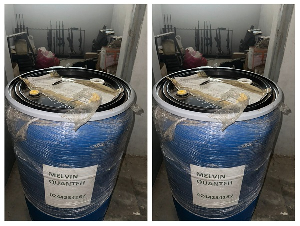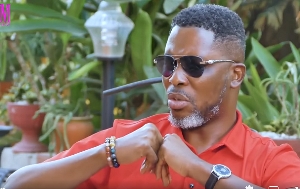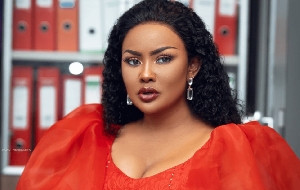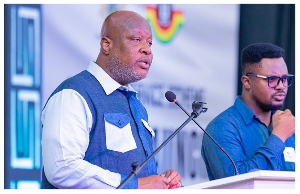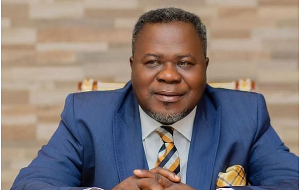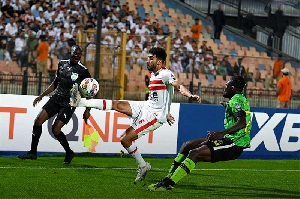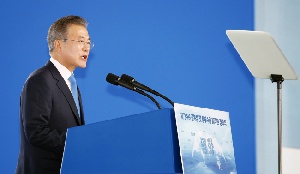 President of Republic of Korea, Moon Jae-in gives a speech at the Liberation Day ceremony in Seoul
President of Republic of Korea, Moon Jae-in gives a speech at the Liberation Day ceremony in Seoul
The Ghana-Korea Parliamentary Friendship Association has sent out a congratulatory message to the Republic of Korea as the latter celebrates its 73rd Independence Day anniversary today.
A statement signed by Cornelia Puobi-Akumpule, Secretary of Ghana-Korea Parliamentary Friendship Association said the celebration called for “sober reflections by all Korean people as well as those associated with the Republic of Korea in friendship” and for the fact that the “bilateral relations between Ghana and the Republic of Korea is not only cozy but mutually beneficial”, it was instructive to celebrate with the Korean people in solidarity.
The Association was hopeful that “effective collaboration at the level of the legislature will enhance and enrich legislations to promote, even further, the development of our respective economies.”
Below is the full statement
SOLIDARITY STATEMENT ON THE OCCASION OF THE REPUBLIC OF KOREA SEVENTY-THIRD INDEPENDENCE ANNIVERSARY (NATIONAL LIBERATION DAY) BY THE GHANA-KOREA PARLIAMENTARY FRIENDSHIP ASSOCIATION
Today, 15th August 2018, marks yet another occasion to celebrate the Republic of Korea’s liberation from oppression as an independent state from Japanese domination. This calls for sober reflections by all Korean people as well as those associated with the Republic of Korea in friendship.
It is therefore instructive that the Ghana-Korea Parliamentary Friendship Association celebrates with the Korean people in solidarity on their seventy- third independence anniversary (National Liberation Day) especially when bilateral relations between Ghana and the Republic of Korea is not only cozy but mutually beneficial.
In 1945, Korea (North and South) was liberated from Japanese occupation; three years later, on August 15th 1948, the Republic of Korea (South Korea) was officially established.
In Korea, the Independence Day called ‘Gwangbokjeol’, meaning ‘Restoration of Light Day’, means an end to Japanese rule over the Korean peninsula. The word ‘restoration’ is used rather than ‘independence’, highlighting Korea’s long and proud history and how the Korean nation was ‘restored’ in 1945. Generally, Koreans call this day ‘Korean Liberation Day’ or ‘National Liberation Day of Korea’.
Earlier in 1392, Korea was a Chinese colony. In 1895, Korea was freed from Chinese dominance at the end of the Sino- Japanese war with the signing of the Treaty of Shimonoseki.
Following the Russo-Japanese war in 1905, Japan forced Korea to sign the Protectorate Treaty heralding Japanese rule of the Korean Peninsula. In 1910, Japan annexed the Korean Peninsula but surrendered it in 1945 to the United States of America which led to regaining its independence.
Korea was administratively partitioned in 1945, at the end of World War II. The history of the Republic of Korea formally begun with its establishment on August 17, 1948, although its then leader Rhee Syngman, a South Korean politician had officially declared independence two days prior. He was the first President of the Republic of Korea from 1948 to 1960. His three-term presidency of the Republic of Korea (August 1948 to April 1960) was strongly affected by Cold War tensions on the Korean Peninsula (Wikipedia, the free encyclopedia).
Since its inception, the Republic of Korea has seen substantial development in education, economy, and culture. Beginning in the 1960s, the country has developed from one of Asia's poorest to one of the world's wealthiest nations. Education, particularly at the tertiary level, has expanded dramatically (Wikipedia, the free encyclopedia).
Following the Korean War, Republic of Korea remained one of the poorest countries in the world for over a decade. In 1960 its gross domestic product per capita was $79, lower than that of some sub-Saharan countries. The growth of the industrial sector was the principal stimulus to economic development (https://en.wikipedia.org/wiki/Economy_of_South_Korea).
During the next three decades, the Republic of Korean economy grew at an average annual rate of nearly 9 percent, and per capita income increased more than a hundredfold. Republic of Korea was transformed into an industrial powerhouse with a highly skilled labour force. The country entered the 21st century on a relatively firm economic footing. (https://www.britannica.com/place/South-Korea/Economic-and-social-developments)
A major feature of Republic of Korea’s economic development was its focus on acquiring technical skills. The state created a number of centers to promote research and the dissemination of technical knowledge to business enterprises such as Korean Institute of Science and Technology (KIST), established in 1966. It also promoted technical education by expanding the number of vocational secondary schools and two-year technical colleges.
Officials received appointment through a highly competitive civil service examination system and were promoted based on clear guidelines for merit. Attracted by good pay and benefits, job security, and enhanced prestige, many of the country’s top university graduates as well as those with overseas degrees entered the ranks of the bureaucracy. As a result, a highly competent, respected set of officials were able to help guide and promote economic and social development (http://asianhistory.oxfordre.com/view/10.1093/acrefore/9780190277727.001.0001/acrefore-9780190277727-e-271).
In 1957, the Republic of Korea had a per capita income of $491. By the early 1980’s the Republic of Korea’s per capita income had grown to a whopping $2,000. By 1990, the Republic of Korea’s per capita income had reached $4,832.
Recognizing the economic importance of the Republic of Korea, as an emerging global power country, Ghana considered it important to enhance relations with her for accelerated development through effective cooperation. The Technical, Economic Cooperation and Trade Promotion Agreement of June, 1990 between the two countries yielded positive result with exchange of research and technical ideas which improved our economies.
In February, 2007, the Government of Ghana and the Government of Korea signed a $1.5 million agreement for the provision of e-consul and e-administration ICT system executed by Korean International Cooperation Agency (KOICA) for the Ministry Foreign Affairs to facilitate communication between the Ministry and its Missions abroad, this is an example of the benefits that have accrued to our technical cooperation with the Republic of Korea.
It was therefore apt when last year, President Nana Addo Dankwa Akufo-Addo, in bidding farewell to the outgoing Korean Ambassador to Ghana, Mr. Lyeo Woon-Ki, intimated that he would, during his tenure, push for the deepening of relations and bilateral ties between Ghana and the Republic of Korea.
In same spirit, the Ghana-Korea Parliamentary Friendship Association is focused on Parliamentary diplomacy in enhancing bilateral and multilateral relations between Ghana and the Republic of Korea. The Parliamentary Friendship Association creates an enabling platform for sharing best practices between the Parliament of Ghana and the National Assembly of the Republic of Korea while supporting the traditional diplomacy reserved for the Executive. By this, the people to people relations and cooperation will be enhanced, especially, in the area of technical cooperation and trade relations.
It is our hope that effective collaboration at the level of the legislature will enhance and enrich legislations to promote, even further, the development of our respective economies.
It is in that spirit of friendship that the Ghana-Korea Parliamentary Friendship Association on this joyous occasion of the Independence Day celebrations (National Liberation Day), congratulate the people of the Republic of Korea and especially, Members of the Korea-Ghana Parliamentary Friendship Group in Korea.
Cornelia Puobi-Akumpule Secretary, Ghana - Korea Parliamentary Friendship Association

